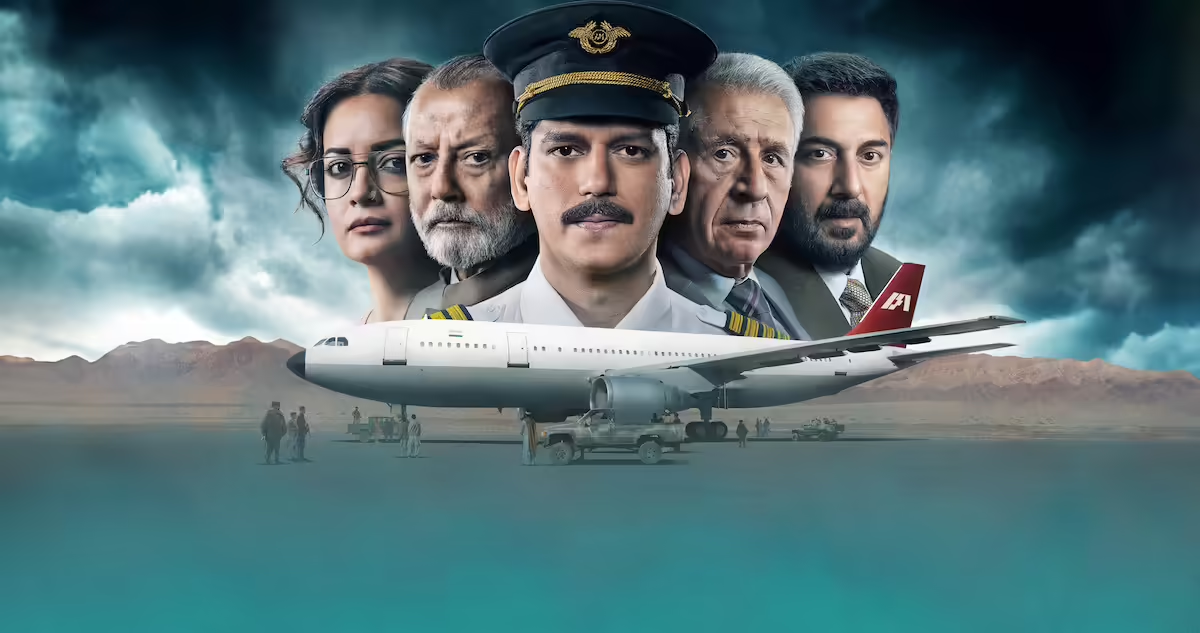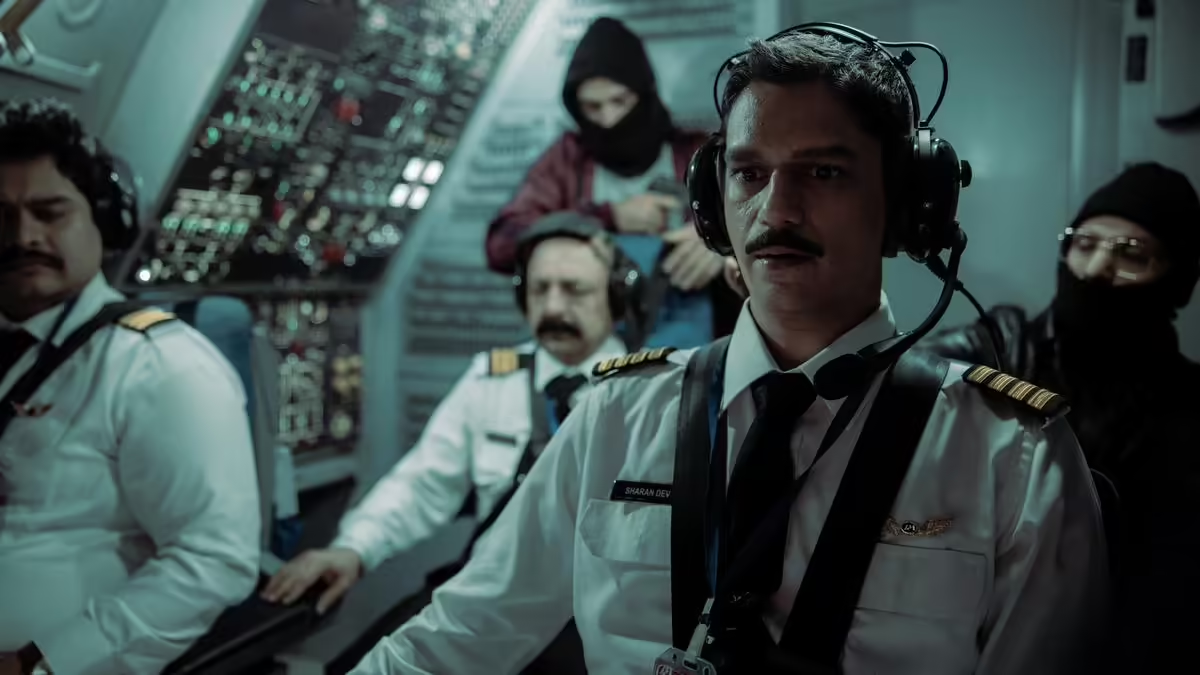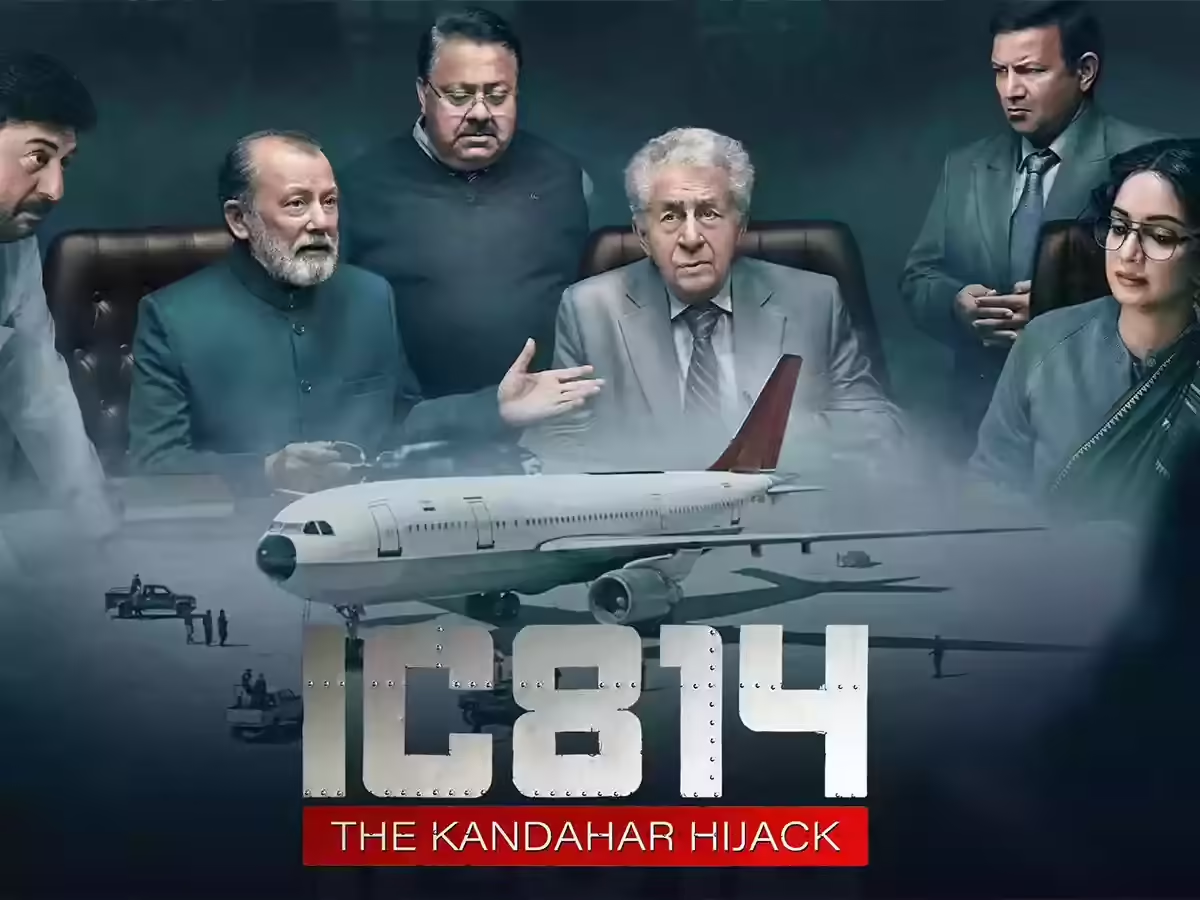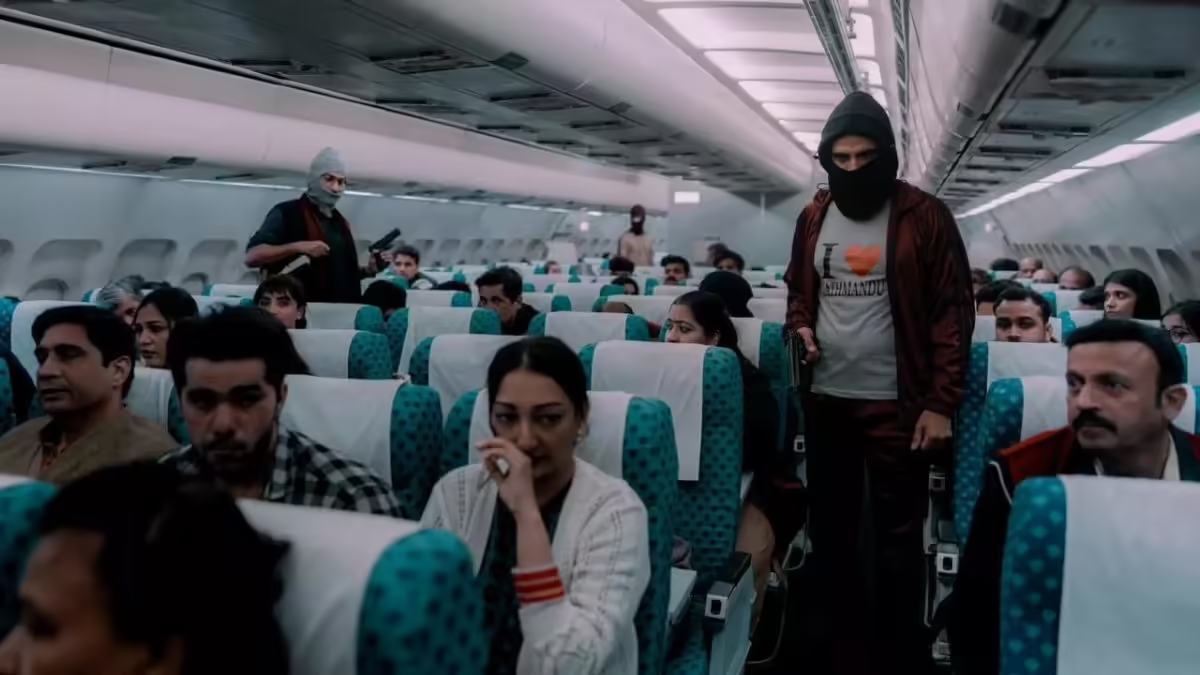
On December 24, 1999, Indian Airlines Flight IC 814 was hijacked by five armed militants, plunging the nation into one of its most prolonged and intense hostage crises. The hijacking of IC 814 not only rattled the Indian public but also triggered significant geopolitical tensions. More than two decades later, this harrowing incident has resurfaced in public discourse, thanks in part to a new Netflix series titled IC 814: The Kandahar Hijack. The show sheds light on the traumatic events of that fateful week and the controversy surrounding the handling of the crisis. This article delves into the hijacking, its aftermath, and the media portrayal that has reignited interest in this dark chapter of Indian history.
The Hijacking: A Day of Horror
On the afternoon of December 24, 1999, Indian Airlines Flight IC 814 took off from Tribhuvan International Airport in Kathmandu, Nepal, bound for New Delhi. However, 40 minutes into the flight, five armed men hijacked the Airbus A300. The hijackers forced the plane to change course, leading to a tense, seven-day standoff that would span three countries and multiple landings.
Initially, the plane landed in Amritsar, India, where Indian authorities attempted to delay the refueling process to buy time. However, fearing for their lives, the hijackers forced the pilot to take off again, with the plane subsequently landing in Lahore, Pakistan. After a brief stop in Lahore, the plane attempted to land in Dubai but was denied permission. Finally, it landed at Kandahar Airport in Afghanistan, which was then under Taliban control.
The hijackers were members of Harkat-ul-Mujahideen, a Pakistan-based Islamist militant group. Their demands included the release of 36 militants imprisoned in India, including notorious figures such as Masood Azhar and Ahmed Omar Saeed Sheikh. The crisis reached its tragic peak when the hijackers fatally stabbed 25-year-old Rupin Katyal, a newlywed returning from his honeymoon, making him the only passenger killed during the ordeal(The Independent, Wikipedia).

The Controversial Resolution
The Indian government’s response to the hijacking was fraught with controversy. Prime Minister Atal Bihari Vajpayee and his Bharatiya Janata Party (BJP) government were caught in a difficult position, facing immense public pressure to secure the safe return of the hostages. After intense negotiations, the Indian government agreed to release three militants—Masood Azhar, Ahmed Omar Saeed Sheikh, and Mushtaq Ahmed Zargar—in exchange for the hostages. On December 31, 1999, the hostages were finally released, and the hijackers were allowed to leave Kandahar unscathed(The Independent).
However, the decision to release the terrorists has been widely criticized. The released militants went on to perpetrate further acts of terrorism, including the 2001 Indian Parliament attack and the 2019 Pulwama attack. Critics argue that the government’s decision emboldened terrorist groups and set a dangerous precedent for future hostage situations. This controversy continues to haunt India’s political landscape, with many questioning whether a different approach could have averted these subsequent tragedies(Wikipedia).
Netflix’s IC 814: The Kandahar Hijack: A New Retelling
In 2024, Netflix released IC 814: The Kandahar Hijack, a series that revisits the events of the hijacking through a dramatic lens. The show is based on the book Flight Into Fear by Captain Devi Sharan, who piloted the hijacked plane. The series takes a multi-perspective approach, exploring the crisis from the viewpoints of the hostages, government officials, and the hijackers themselves(The Independent).
While the series has been praised for its intense storytelling and strong performances, it has also faced significant criticism. One of the primary points of contention is the portrayal of the hijackers. The series uses code names for the terrorists, such as “Bhola” and “Shankar,” rather than their real names, which has led to accusations of whitewashing their identities and downplaying the severity of the situation. Critics argue that by altering the hijackers’ identities, the series diminishes the historical context and the threat posed by the terrorists(Wikipedia).
Veteran journalist Vir Sanghvi and historian Hindol Sengupta have been particularly vocal in their criticism. They believe the series fails to accurately represent the geopolitical implications of the hijacking and offers a sanitized version of events. In response to these criticisms, Netflix added disclaimers to clarify the use of real and code names in the series, but the controversy has sparked a broader debate about the responsibilities of filmmakers when depicting real-life events(The Independent, Wikipedia).

The Controversy Over the Portrayal of Terrorists
The portrayal of the hijackers in IC 814: The Kandahar Hijack has been a focal point of the series’ controversy. Critics have accused the show of downplaying the hijackers’ identities by giving them Hindu-sounding code names, a decision that some argue dilutes the gravity of their actions. This has led to accusations that the series offers a sanitized version of the hijacking, which could mislead viewers about the true nature of the event.
The controversy escalated when the Ministry of Information and Broadcasting in India summoned Netflix executives to explain the series’ content. Following this, Netflix agreed to add disclaimers clarifying the use of real and code names in the show. However, the debate has highlighted the challenges of adapting real-life events into entertainment without compromising historical accuracy(Wikipedia).
Rupin Katyal: The Face of Innocence Lost
The murder of Rupin Katyal remains one of the most poignant and heartbreaking aspects of the IC 814 hijacking. Katyal, who was just 25 years old, was returning from his honeymoon with his wife, Rachna, when he was brutally stabbed by the hijackers. His death sent shockwaves through India, turning him into a symbol of the hijacking’s senseless violence.
In the years since the hijacking, Katyal’s family has struggled to come to terms with his loss. His death also raised questions about the Indian government’s ability to protect its citizens during such crises. For many, Katyal’s murder underscored the brutal reality of terrorism and the devastating impact it can have on innocent lives(The Independent).
The Legacy of IC 814
The IC 814 hijacking had far-reaching consequences for India’s national security policies. In the aftermath of the incident, the Indian government implemented several measures to strengthen its counter-terrorism strategies and aviation security protocols. These included the establishment of a dedicated crisis management group and the introduction of stricter airport security checks.
However, the hijacking also left a lasting scar on India’s collective consciousness. The decision to release terrorists in exchange for hostages has been a source of ongoing debate, with many arguing that it set a dangerous precedent for future negotiations with terrorists. The release of Masood Azhar, in particular, has been linked to several high-profile terrorist attacks, leading to criticism of the government’s handling of the crisis(The Independent, Wikipedia).

The Broader Impact on Indo-Pak Relations
The IC 814 hijacking also had significant implications for Indo-Pak relations. India accused Pakistan of harboring and supporting the hijackers, a claim that further strained the already tense relationship between the two countries. The incident highlighted the role of Pakistan-based terrorist groups in cross-border terrorism and underscored the need for international cooperation in combating terrorism.
In the years since the hijacking, India has continued to grapple with the threat of terrorism, particularly from groups operating out of Pakistan. The IC 814 incident serves as a reminder of the ongoing challenges India faces in securing its borders and protecting its citizens from terrorist threats(The Independent, Wikipedia).
Conclusion
The IC 814 hijacking remains one of the most significant and controversial events in India’s history. The Netflix series IC 814: The Kandahar Hijack has reignited interest in the incident, offering a dramatic retelling that has both informed and divided viewers. While the series provides a compelling narrative, it also highlights the complexities of portraying real-life events with accuracy and sensitivity.
As the legacy of IC 814 continues to evolve, it serves as a stark reminder of the enduring impact of terrorism and the difficult decisions that governments must make in the face of such threats. For those interested in exploring the full story of the hijacking and its aftermath, Flight Into Fear by Captain Devi Sharan and other accounts offer valuable insights into one of the most significant events in Indian history.
For further insights and news, visit Newz-Insight.




Leave a Reply